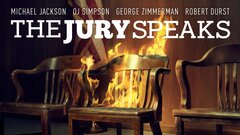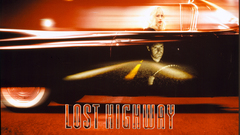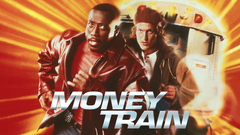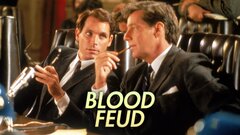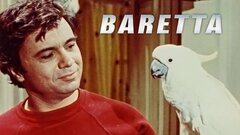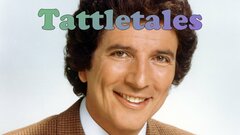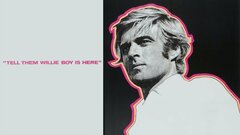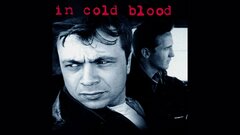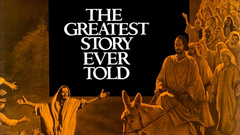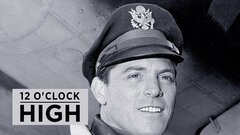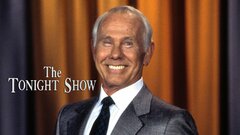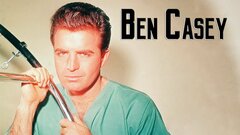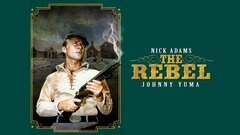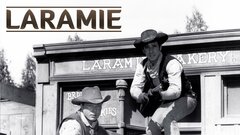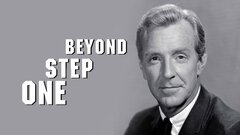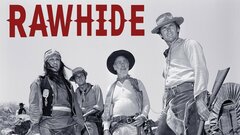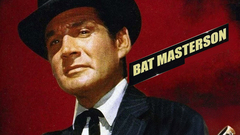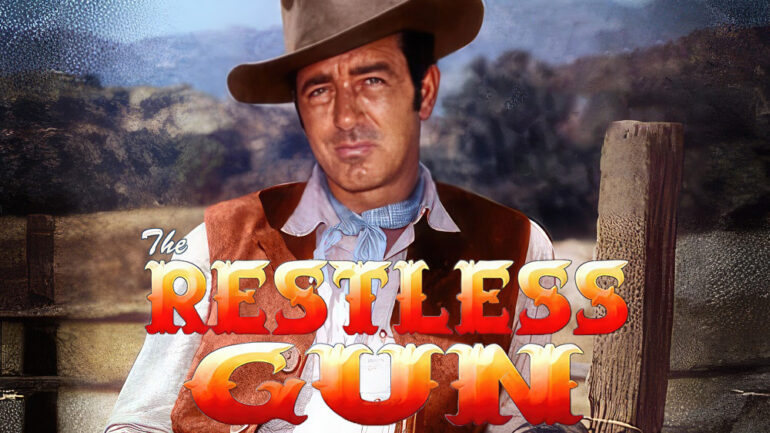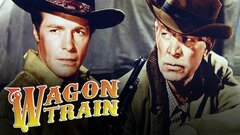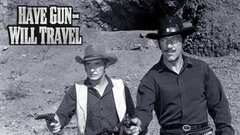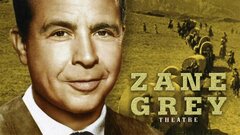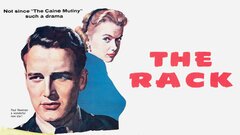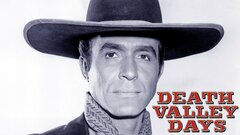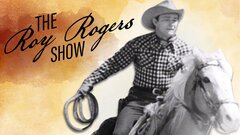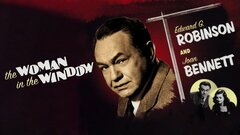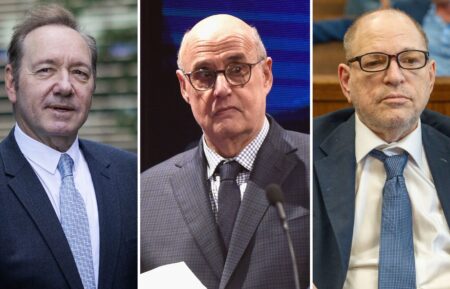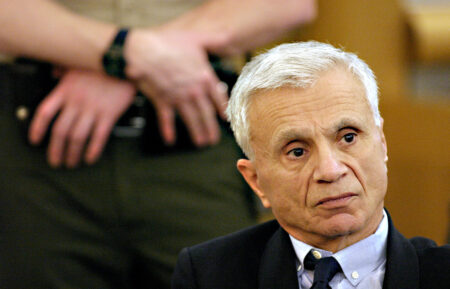Actor Robert Blake began his career as a member of the preadolescent comedy troupe "Our Gang," and later as an adult actor enjoyed critical notoriety with the docudrama "In Cold Blood" (1967) and achieved breakout fame as the exotic bird-loving star of the popular television series "Baretta" (ABC, 1975-78). It was as the prime suspect in the domestic murder of wife Bonnie Lee Bakley, however, that would ultimately overshadow the onetime revered actor's career.
As a child, Blake's parents began taking the toddler to auditions in Los Angles in the late 1930s, and for more than a decade he appeared in dozens of films and television programs. After a tumultuous two-year enlistment with the U.S. Army, Blake returned home and underwent intense psychotherapy treatments in an effort to cope with his depression and self-loathing. Having made substantial gains, he resumed his acting career as an adult with supporting roles in such films as "Pork Chop Hill" (1959) and "The Greatest Story Ever Told" (1965).
With his intense portrayal of murderer Perry Smith in the adaptation of Truman Capote's "In Cold Blood," Blake was poised for mainstream feature film stardom. Follow up movies failed to capitalize on the earlier success, however, and the actor soon returned to television. As the streetwise titular hero of "Baretta," it seemed Blake had at last found his star-making role. After his hit cop show was canceled, the actor appeared with some regularity on television before disappearing from screens almost entirely for nearly a decade. He unfortunately reemerged not for artistic endeavors, but for making national headlines when he was accused of plotting the murder of his estranged wife in 2001.
Born Michael James Vincenzo Gubitosi on Sept. 19, 1933 in Nutley, NJ, Blake was the son of mother Elizabeth and father Giacomo "James" Gubitosi, an Italian immigrant who worked as a die setter for a manufacturing company. Elizabeth and James later formed a musical stage act to bring in extra money, and eventually brought their children into the routine. By 1938, they moved the family to Los Angeles and began pursuing extra work in movies for Blake and his two siblings. Almost immediately, Blake found success when he made his debut in the MGM comedy "Bridal Suite" (1939). That same year, he began his career in earnest - now billed as "Mickey Gubitosi" - in "Joy Scouts" (1939), the continuation of the long-running series of "Our Gang" comedy shorts.
The child actor worked continuously with Spanky and the Gang in dozens of short films over the next several years. By the early 1940s, MGM had rechristened him "Bobby Blake" for such films as "China Girl" (1942), "Andy Hardy's Double Life" (1942) and "Salute to the Marines" (1943). While never achieving the child star status of contemporaries Mickey Rooney or fellow "Our Gang" star Jackie Cooper, he gained considerable notice as "Little Beaver" in more than a dozen "Red Ryder" Western serials, beginning with "Tucson Raiders" (1944).
Despite outward appearances of success, according to Blake in interviews years later, his childhood was far from a happy one. His memories of growing up with his parents were filled with abuse, not only emotional and physical in nature, but sexual, as well. By his recollection, he was frequently locked in a closet for days by his violent, alcoholic father and often forced to eat off of the floor. When he reached his late-teens, Blake sought escape from his nightmarish home life by enlisting in the U.S. Army. Try as he might, however, the troubled young man was not able to leave his issues of anger and self-doubt behind - particularly during an era when these things were not discussed in good company. There were incidents of insubordination that resulted in Blake being incarcerated for a period while he was stationed in Alaska.
One particular episode involved his admitted contemplation - and near follow-through - of killing the disapproving father of an underage girl he was involved with at the time. After his release from the service, Blake's emotional state only worsened. He grew increasingly withdrawn and despondent, seldom left his home and frequently contemplated suicide. When he at last sought help with professional therapy, Blake gradually returned to a semblance of normalcy. He studied acting, attended college classes, and performed in local theater productions. After making his career re-entry with guest-starring turns on various television programs, he managed to land a leading role in the crime drama "The Purple Gang" (1959). That same year, a supporting part in the Gregory Peck Korean War film "Pork Chop Hill" (1959) completed Blake's cinematic transition to adulthood.
By the early 1960s, Blake was consistently appearing in important films in supporting roles such as an accused G.I. defended by Kirk Douglas in "Town Without Pity" (1961) and as a member of a young JFK's combat boat crew in "P.T. 109" (1963). Working steadily, he was also a member of the anthology players on "The Richard Boone Show" (NBC, 1963-64), and played Simon the Zealot in director George Stevens' biblical epic, "The Greatest Story Ever Told" (1965). Although he had been acting professionally since the age of five, it was not until he played murderer Perry Smith in the fact-based "In Cold Blood" (1967), that Blake at last demonstrated the full breadth of his ability.
Based on the controversial bestseller by Truman Capote, Blake's complex, seething performance earned him rave reviews and top-billing status. Two years later, he headlined with rising megastar Robert Redford in the anti-Western "Tell Them Willie Boy is Here" (1969), starring in the title role as a native-American on the run after killing the father of his Anglo girlfriend (Katherine Ross) in self-defense. Unfortunately, "Willie Boy" was not the success Blake had hoped for, nor were his subsequent big screen efforts in the years that immediately followed. He gave a solid performance as a diminutive but determined motorcycle patrolman trying to solve a murder in "Electra Glide in Blue" (1973), a film brutally panned by critics at the time, although it later achieved a modicum of cult-film status.
Director Peter Hyams' first feature film "Busting" (1974), a buddy cop actioner pairing Blake with Elliot Gould, fared no better. With his theatrical fortunes waning, Blake looked to television for future opportunities. After actor Tony Musante had bowed out of his gritty cop series "Toma" (ABC, 1973-74), the network retooled the property with Blake as the lead in "Baretta" (ABC, 1975-78). Less violent than its predecessor and infused with a rugged sense of humor, the show became a hit and established Blake's newfound persona as the tough-talking, Cockatoo-owning urban crime fighter with the catchphrase, "And dat's the name of dat tune."
The move paid off, with Blake winning an Emmy for his work on the series and his star was once again on the rise. He followed "Baretta" with "Coast to Coast" (1980), a screwball comedy co-starring Dyan Cannon as a woman fleeing her unscrupulous husband. The film was another disappointment at the box office, and he returned to TV with a series of movies as hard-boiled P.I. Joe Dancer, beginning with "The Big Black Pill" (NBC, 1981). Another feature film, "Second-Hand Hearts" (1981), directed by troubled filmmaker Hal Ashby, became another in a string of theatrical failures for Blake.
Once again, television provided a more welcoming venue for Blake's talents. He played a world-weary George in the well-received adaptation of John Steinbeck's heartbreaking tale of friendship "Of Mice and Men" (NBC, 1981), followed by an equally impressive turn as ill-fated union kingpin Jimmy Hoffa in the miniseries "Blood Ties" (syndicated, 1983). When Blake landed the lead in another series, this time as a crusading priest trying to clean up a tough neighborhood in "Hell Town" (NBC, 1985-86), it looked as if Blake had found career stability. However, his increasingly combative professional attitude, erratic offscreen behavior, and rumored substance abuse soon led to the show's cancelation and Blake's virtual disappearance from Hollywood for much of the next decade.
Blake reemerged with a dark portrait of a mass murderer in the made-for-TV movie "Judgment Day: The John List Story" (CBS, 1993), the factual recounting of a man who, after killing his entire family, remained at large for 17 years under an assumed identity. He returned to the big screen as a tough-minded MTA boss opposite Wesley Snipes and Woody Harrelson in "Money Train" (1995), an action-comedy that failed miserably at the box office. The actor later turned in what would be his most enigmatic portrayal on film when he played the malevolent Mystery Man in director David Lynch's mesmerizingly incomprehensible noir "Lost Highway" (1997).
It would be Blake's last film appearance before the startling events of May 4, 2001, when his wife of just a few months, Bonnie Lee Bakley, was shot dead in his car just outside a Studio City restaurant they frequented. According to Blake's statement, after dining together at his favorite Italian eatery, Vitello's, he realized that he had dropped a licensed handgun he carried at the table and went back inside to retrieve it, leaving her alone in the car. Upon his return, Blake said he discovered Bakley slumped in the vehicle, bleeding profusely from a bullet wound to the head. As the police investigation into the murder got underway, a scandalous picture began to emerge.
Bakley, a well-known celebrity stalker and mail-order scam artist, had become pregnant with Blake's child after orchestrating a one-night stand in 1999. At that time she was also involved with Christian Brando, the troubled son of film icon Marlon Brando, who she initially claimed to be the father of her child. However, after DNA-tests confirmed Blake as the father, he reluctantly married Bakley, who then took up residence in the guest house of his San Fernando Valley home, dubbed "The Mata Hari Ranch" in late 2000. While far from being a typical, or particularly loving, marriage, Blake would later insist that he had been trying to make the relationship work for the sake of their baby girl, Rose. Not surprisingly, Blake was immediately viewed as a person of interest in the police investigation.
One day after the murder, the LAPD arrived at Blake's home and began an extensive search and interview process with the actor, whose account of the previous night's events were already in question. In the meantime, Blake's legal team began painting an unflattering portrait of Bakley, describing her as a gold-digging scam artist, who had already unsuccessfully attempted to entrap rock-n-roll legend Jerry Lee Lewis in a similar pregnancy scheme years earlier. Bakley was a woman with a criminal history of bilking men out of money, and very likely had made her fair share of enemies. In the opinion of Blake's attorney Harland Braun, she had an "interesting past...that may have caught up with her."
For nearly a year, Blake's attorneys conducted an unofficial investigation into Bakley's past as the LAPD continued to focus their efforts on Blake himself. Finally, on April 18, 2002, Los Angeles police arrested and charged Blake with Bakley's slaying, along with his longtime bodyguard, Earl Caldwell, on conspiracy to commit murder. Blake paid Caldwell's bail, but the courts denied bail to the actor himself, leaving him incarcerated for several months before his trial went to court. While awaiting trial, Blake insisted on giving a televised interview with Barbara Walters, in which he professed his innocence. After unsuccessfully pleading with Blake to not speak publicly about the case, a frustrated Braun and another defense attorney excused themselves from the trial.
After nearly a year in jail, Blake was finally freed on $1.5 million bail, although he remained under house arrest and was ordered to wear a monitoring device while he continued to wait for his day in court. When at last the trial commenced in December of 2004, the prosecution relied heavily on the testimony of two former stuntmen who claimed that Blake had offered each of them money in return for killing Bakley. For their part, Blake's defense team portrayed the two men as unreliable former drug-abusers who, by their own admissions, had suffered psychotic breaks in the past. Additionally, much was made of the fact that, despite circumstantial evidence and conjecture on the part of the LAPD and the district attorney's office, there had been no clear physical evidence or actual witnesses to connect Blake to the murder.
Blake never took the stand in his own defense during the trial, although his attorneys did show the jury his interview with Barbara Walters in lieu of testimony. On March 16, 2005, Blake was acquitted on one count of murder and one count of solicitation of murder. Another count of solicitation was dropped after the jury became hopelessly deadlocked. After the verdict, a stunned District Attorney insisted that Blake was "guilty as sin," going so far as to call the jury "incredibly stupid."
Despite his victory in the criminal case, in November 2005 a civil court jury found Blake liable in the death of his wife, Bonny Lee Bakley, and ordered him to pay her family damages in the amount of $30 million. The actor declared bankruptcy shortly thereafter. With his finances already drained by the protracted criminal trial and saddled with substantial debt after the result of the civil case, Blake briefly came out of retirement with a brief onscreen cameo as himself in Michael Myers' misbegotten comedy, "The Love Guru" (2008). In February of 2011, Blake made news again when he was escorted off the premises of a Los Angeles memorabilia convention after a disagreement concerning the organizer's handling of an autograph session.
